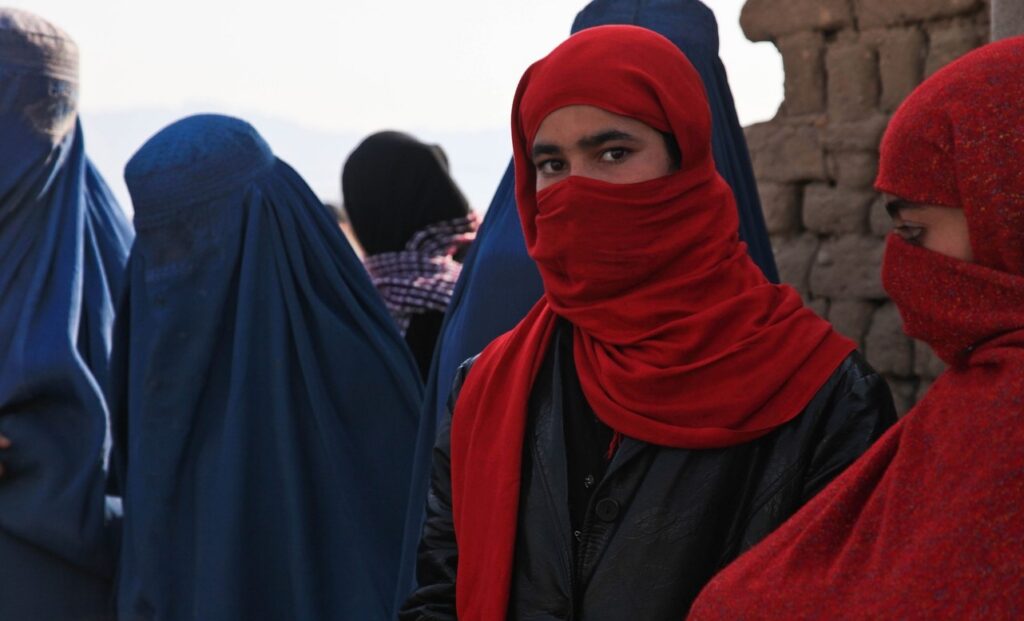Taliban Leader Doubles Down on Treatment of Women
In Taliban-ruled Afghanistan, female education ends at grade six. On March 21, 2022, the Taliban promised to reopen all schools in Afghanistan, seemingly ending the temporary ban it had placed on girls attending secondary school since its return to power seven months earlier.
Just two days later, the authorities reversed the decision and restricted girls over the age of 12 from attending state-run schools. The Taliban has also banned many women from the workplace, as well as from public spaces such as parks, gyms, and bathhouses. This unfortunate ban stands against the core principles of Islam and hinders Taliban’s efforts to gain international recognition.
The Taliban’s refusal to allow Afghan women and girls to receive an education is a strategic mistake that stands in the way of the government’s efforts to gain international acceptance and find reliable partners that would support Afghanistan’s economic and structural development.
On Aug. 30, 2021, the United States ended its military presence in Afghanistan, marking the end of 20 years of war and foreign occupation. In the wake of the withdrawal, Taliban forces quickly seized the levers of power in the country after two decades of insurgency. This included a triumphant march on the capital city of Kabul and other urban centers, which had undergone years of US-backed reforms expanding the freedoms of women.
The Taliban’s reclusive supreme leader ruled out any compromise Wednesday on his hardline Islamic governance in Afghanistan despite persistent global criticism and calls for him to end sweeping restrictions on women.
Hibatullah Akundzada addressed and led thousands of worshipers in Eid al-Fitr prayers at the central mosque in the southern city of Kandahar to mark the end of the Muslim fasting month of Ramadan.
The Taliban leader has suspended girls’ education in Afghanistan beyond the sixth grade and prohibited many women from public and private workplaces, including the United Nations and other aid organizations. Women are also forbidden from visiting public places such as parks, gyms, and bathhouses.
Akhundzada has defended his decrees, saying they are aligned with Afghan culture and Islam.
The Taliban returned to power in August 2021, when the then-internationally backed Afghan government collapsed, and U.S.-led Western nations withdrew all their troops after nearly 20 years of involvement in the war with the then-insurgent Taliban.
Activist Post is Google-Free — We Need Your Support
Contribute Just $1 Per Month at Patreon or SubscribeStar
Women were initially convinced that their freedoms would not be curtailed, but it quickly became apparent that the Taliban had no intention of allowing western ideals and culture to proliferate in the country. Shortly after, the Taliban banned women’s education above grade 6.
As Enayat Nasir notes in The Conversation, “this is the second time that the Taliban have banned education for girls in Afghanistan.”
“The first time was during their previous regime in the late 1990s. When the Taliban were overthrown in 2001, everything changed. Communities, civil society, the Afghanistan government and international partners, including foreign governments and NGOs, came together to support girls’ education. Consequently, school enrollments for girls increased dramatically from almost none in 2001 to about 4 million by 2020.”
In Nasir’s view, the likelihood of the Taliban reversing their ban on girls’ education appears slim due to deep-rooted ideological beliefs and political strategy. The initial rationale behind the ban ties to the Taliban’s adherence to strict patriarchal religious and cultural norms, drawing comparisons to historical precedents like Iran after its revolution. They aim to “purify” educational settings which they claim conflict with these values, despite the widespread support for girls’ education within Afghanistan from both the public and religious sectors.
Politically, the Taliban has indicated they might use the ban as leverage, suggesting girls’ education could be negotiable in exchange for international recognition of their regime. This highlights their view of education as a bargaining tool rather than a fundamental right.
Fear of societal change led by educated women also plays a significant role. The Taliban fears that allowing girls to become educated would lead to ideological non-conformity and challenge their authority.
The implications of continuing this ban are severe. It threatens to create a generation of uneducated women, leading to increased marginalization, abuse, and violence. This not only stifles the potential of half of Afghanistan’s population but also hampers the country’s social and economic progress, potentially perpetuating poverty, and international isolation.
While the Taliban’s ban on girls’ education is rooted in ideological, cultural, and strategic considerations, reversing this policy would require a significant shift in their current stance, which seems unlikely given the regime’s objectives and fears. The ongoing ban poses significant risks for the future of girls and women in the country and, unfortunately, it doesn’t look like it will change as long as the Taliban remains in charge.
Image: Pixabay
Become a Patron!
Or support us at SubscribeStar
Donate cryptocurrency HERE
Subscribe to Activist Post for truth, peace, and freedom news. Follow us on SoMee, Telegram, HIVE, Minds, MeWe, Twitter – X, Gab, and What Really Happened.
Provide, Protect and Profit from what’s coming! Get a free issue of Counter Markets today.




